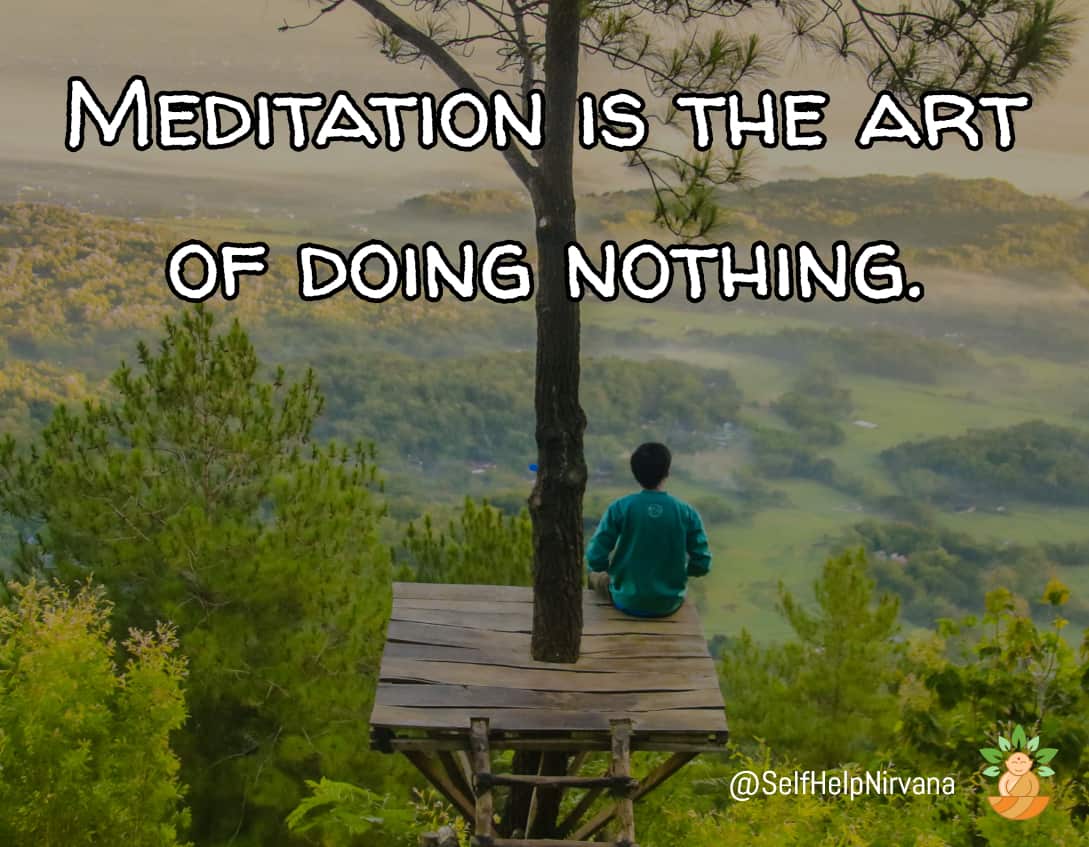Essential Meditation In A Nutshell
As you may already know, I have written many articles about meditation on this site, including a recent one on meditation tips for beginners – but today, I came across a short article (it will take you a couple of minutes to read) that, to me, succinctly explains what real meditation is all about:
https://medium.com/@ngoeke/learn-proper-meditation-in-2-minutes-e7d1b63bfb14
(If the above link doesn’t work, for any reason, then try this archived version instead.)
I would have to agree that the meditation industry has exploded recently – there are people offering to teach it, using all sorts of different methods, there are apps to help you meditate, there are composers creating music to meditate by (much of which is, at least, free), there are accessories (e.g. Tibetan singing bowls, which I use more as an aid to falling asleep, pillows, bells, candles), and probably a ton more.
But what the author of that article is saying is that none of that is necessary.
I know, it sounds shocking, almost heretical – because it is so contrary to what we have been told.
And you can see why this industry might have sprung up – people seem to be confused about what meditation is and how they should practise it (and, being cynical, that may in part be because of all the different companies and teachers all espousing their own techniques).
In fact, I see a lot of people asking about how they can learn to meditate – and perhaps the answer is, there is nothing to learn.
Because if you get too hung up about some of the common questions I come across, such as the following, then you’re being distracted from your actual meditation:
- Are I wearing the right clothes?
- Am I in the correct position?
- Should I be indoors or outdoors?
- What music should I be listening to?
- How long should I meditate for?
- What should I focus on?
- What time of day is best?
The answer, then, to many of those questions might be, “Whatever works for you.“
And maybe just sitting there, comfortably, and in silence, is all it really takes.
This would mean, of course, that my articles about Boketto and silence are even closer to the mark, in terms of essential meditation, than I first thought.
Naval Ravikant’s advice to focus on nothing sounds deceptively simple, but if you’ve ever tried to meditate before, you’ll know it’s almost impossible to turn your mind off and silence that inner voice.
For me, this is good news because focusing on my breath, which is perhaps the most common advice, is difficult, because back in 2006 I developed anosmia (i.e. a loss of the sense of smell, and to a large degree, taste), and whatever triggered that has left me unable to breathe in or out through my nose for most of the time, which makes all breathing harder than it should be.
And it makes sense to me too – even focusing on your breath or music or chanting is telling your brain to concentrate on something, when maybe you should be letting your brain tell you what it needs to tell you.
But as the article says, perhaps many people do find it scary to be alone with their thoughts, and it could be why humans are generally so keen on external stimulation.
For me, being a solitary type of person, and having lived alone since late 2018 when my wife died (but even before that, because the two of us hadn’t gone out in over a decade, and never had visitors to the house, given we preferred each other’s company and valued our privacy), I’ve never minded being by myself and having those internal conversations that some people might take as a sign of insanity.
My challenge would be to stop judging those thoughts and starting an entire cascade of yet more thoughts – instead of allowing them to simply come and go.
I would even go so far as to say it’s a vital step in working out who you truly are – if you constantly block out your thoughts with music and conversation and television and social media, how will you ever really know what matters to you?
Is this also why people seem to be so out of touch with their own bodies these days?
Not only are there all these distractions, but the pharmaceutical companies have persuaded people not to worry because they can always pop a pill to deal with their issues (although these prescription drugs typically only mask symptoms but rarely, if ever, address the underlying cause of any health problems).
Of course, this doesn’t mean you shouldn’t use other objects (e.g. music, candles, incense) if it helps you, but you should be asking yourself whether you want them present because you truly find them useful (e.g in terms of relaxing and meditating) or because you think they are necessary, based on what you’ve been told or have read.
In summary, then, if you’ve tried to meditate before and struggled, perhaps it was because you too were overthinking it, so try this ultra-simple technique of simply sitting in silence and letting any thoughts come and go, without judgement or analysis, and see how this goes.







